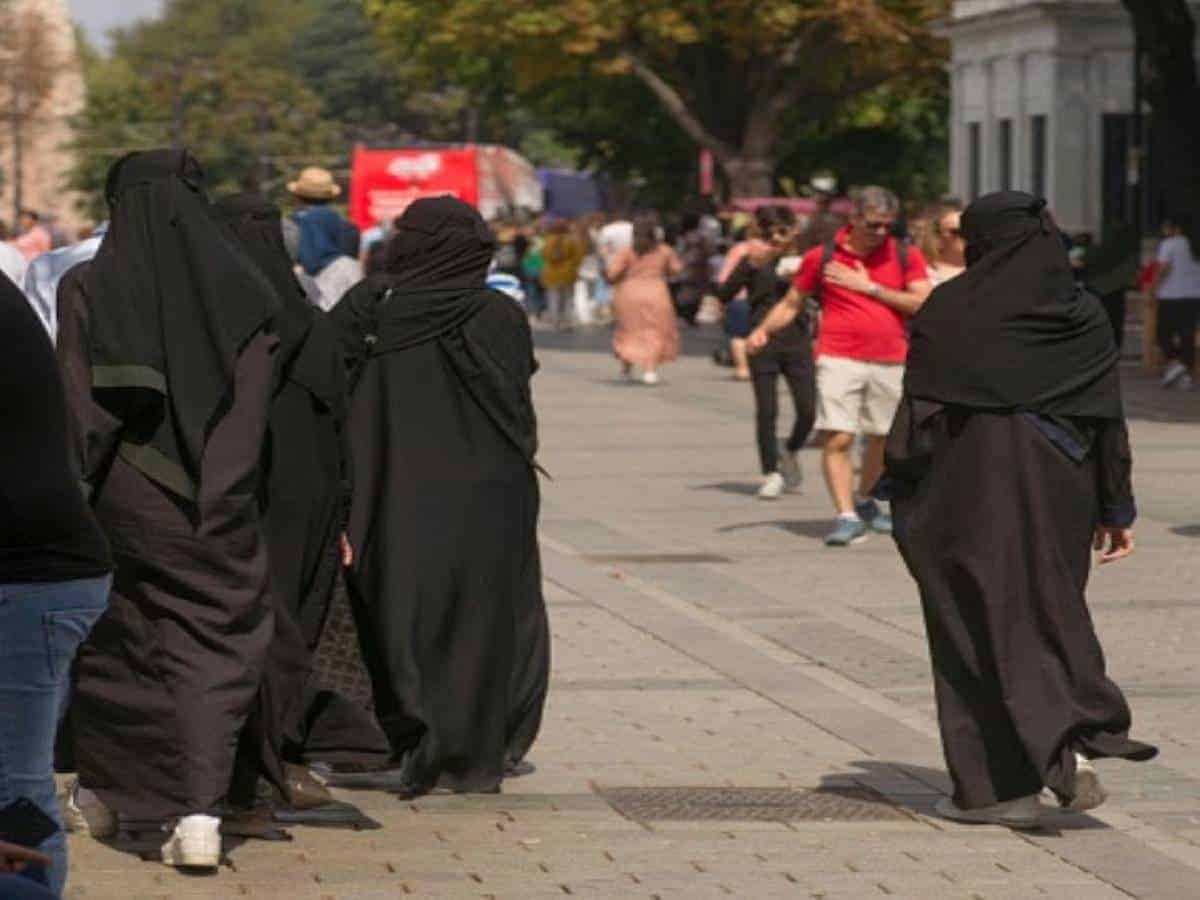Colombo: Sri Lanka’s cabinet on Tuesday approved a proposal to ban all types of face veils in public places due to national security concerns.
“The cabinet has approved the proposal … it will now go to the draft law and then it will be brought to parliament,” cabinet spokesman Keheliya Rambukwella told the weekly media conference.
The announcement comes at a time when the government is urging the public to curb the spread of COVID-19 and wear face masks to stem the third wave in Sri Lanka – dozens of violators have been arrested. ۔
The proposal to ban the burqa was announced in March by public safety minister Sarath Weerasekara, Just weeks before the UN Human Rights Council passed a resolution on Sri Lanka.
However, the government later clarified that this was just a proposal and it would not rush through the process to ban burqas and the decision on the issue would be taken after reaching a consensus.
Last month, the Pakistani High Commissioner in Sri Lanka, Saad Khatak, criticized the proposal to ban wearing the burqa in the country, saying that such a “controversial move” in the name of security would not only affect Muslim sentiment but also strengthen wider apprehensions about the fundamental human rights of minorities in the island nation.
According to Euronews, Sarath Wirassekera said that the niqab and burqa symbolize Islamic extremism, and the minister added that the authorities would close private and Islamic religious schools. The government had followed a strict security approach since the suicide attacks in April 2019, which killed 279 people.
The wearing of the burqa was temporarily banned in Buddhist-majority Sri Lanka after the Easter attacks. in 2019, but Muslims have expressed their shock at the government action.
The advisor for women’s affairs, Salma Mohiuddin, said that she does not consider herself a defender of the face covering, and she does not wear it, but defends the right of every woman, whether Muslim or non-Muslim, to wear what she wants, indicating that the government is trying to impose dress rules on women. She limits her right to choose what she wants, whether she wears a short dress or covers her face
Earlier this month, the French senate voted to ban the hijab for Muslim girls under the age of 18, less than a month after voters in Switzerland supported a ban on burqa and the niqab.

